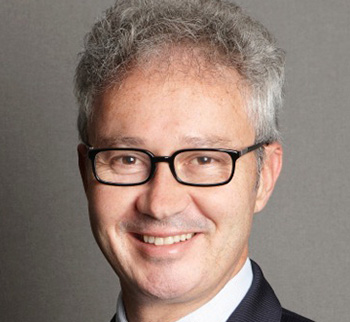In the last several weeks, the Royal Commission into Institutional Responses to Child Abuse in Australia has examined the response of the ultra-Orthodox Yeshiva Center in Melbourne and its counterpart in Sydney to cases of child sexual abuse. The commission has specifically attempted to investigate how the extensive offending by convicted pedophiles David Kramer, Daniel Hayman and David Cyprys in the 1980s and 1990s were dealt with by the rabbis and leaders of the yeshiva.
The commission has heard testimony from a number of victims of child sexual abuse within the organization. With one exception, all victims have chosen to remain anonymous.
The proceedings underline why Manny Waks, the founder of Tzedek, an Australian-based support and advocacy group for Jewish victims of child sexual abuse, was the first and only victim of child sexual abuse in the Australian Jewish community to go public. Waks displayed enormous courage then and continues to do so now. He and his family have paid a terrible price for seeking to ensure there is accountability for perpetrators and those who have tried to shield them.
The persecution and abuse directed at Waks and his family by some within the yeshiva community continued during the royal commission hearings.
A number of witnesses from the Yeshiva Center were compelled to give evidence. It made grim viewing. Rabbi Yosef Feldman said he did not think it was appropriate for victims to go to police if the offences took place decades prior and if the offender had since stopped offending. Rabbi Feldman also said he “did not know” it was a crime for an adult to touch a child’s genitals. His father, also a rabbi, explained that he permitted a pedophile to flee the authorities by leaving Australia.
There was a smorgasbord of other evidence containing failing memories, obfuscation, abysmal governance procedures and dangerous beliefs about what constitutes child sexual abuse and what appropriate responses should be.
There were also expressions of regret and apologies – some more genuine than others. Rabbi Meir Shlomo Kluwgant, for example, stepped down as president of the Organization of Rabbis of Australasia. The commission heard that Rabbi Kluwgant sent a text message a week prior to resigning calling Zephaniah Waks, the father of Manny, a “lunatic” who had neglected his own children.
The royal commission has delivered at least two vital benefits to the Australian Jewish community. It has given victims of child sexual abuse a measure of justice by allowing them to give evidence, either publicly or privately. Secondly, the hearings have provided the only measure of accountability to date for those who have shielded criminals and persecuted their victims.
And there has been another breakthrough: the broader Jewish community is starting to speak up. In a statement, Vic Alhadeff of the Executive Council of Australian Jewry (ECAJ) condemned Rabbi Feldman’s evidence in the strongest terms: “Yossi Feldman’s statements are repugnant to Jewish values and to Judaism, which is centred on the sanctity and dignity of individual life, especially the life of a child,” the ECAJ said.
The next step for the commission is to formulate its findings and any policy recommendations. In the meantime, there is an enormous task ahead for the Jewish community in Australia: cultural change.
Although the commission has focused its time and resources on examining the yeshiva, child abuse is not confined to it or to the ultra-Orthodox community. Tzedek has had contact with victims who have come from a range of backgrounds within the Jewish community.
Child sexual abuse occurs throughout society where abusers – almost entirely men – have access to innocent children. The current momentum to hold powerful organizational representatives in all Jewish organizations and schools to account to ensure this issue isn’t swept under more carpets and that abusers are not shielded, must be maintained.
There is a need to address the archaic and, arguably, obsolete notion of mesira – a belief in some Jewish circles that going outside the Jewish community to address issues of concern, including crime, is a sin greater than the issue itself. It cannot and should not be used as an excuse to shield criminality from the authorities.
Are our rabbis and teachers sufficiently trained about child sexual abuse? The evidence suggests not. Crucially, there must be acknowledgment of what the data on child sexual abuse tells us: that the most unsafe place for some children is the family home. Clearly, more work needs to be done.
All Jewish organizations in Australia – and the world – are on notice. They all must genuinely commit to adopting accountable and transparent policies and procedures to ensure all children are safe and that all allegations of child sexual abuse are immediately reported to the police.
Still, cultural change takes time and sustained effort. We know that addressing child sexual abuse requires multiple strategies and the engagement of the different parts of the Jewish community. Tzedek is working to transform our culture so that those responsible for the safety and welfare of children respond swiftly and determinedly in accordance with the quality practices and guidelines.
The royal commission has made graphically clear that there are no excuses for shirking our responsibilities to protect vulnerable children.
Josh Bornstein is the president of Tzedek and a principal at Maurice Blackburn Lawyers, based in Melbourne, Australia.
